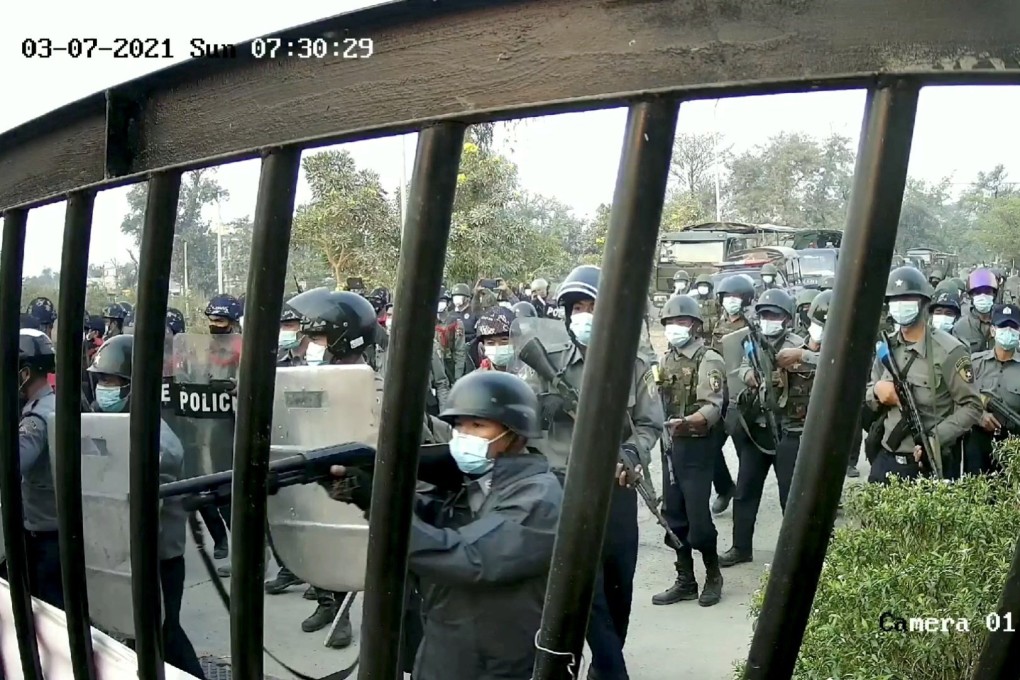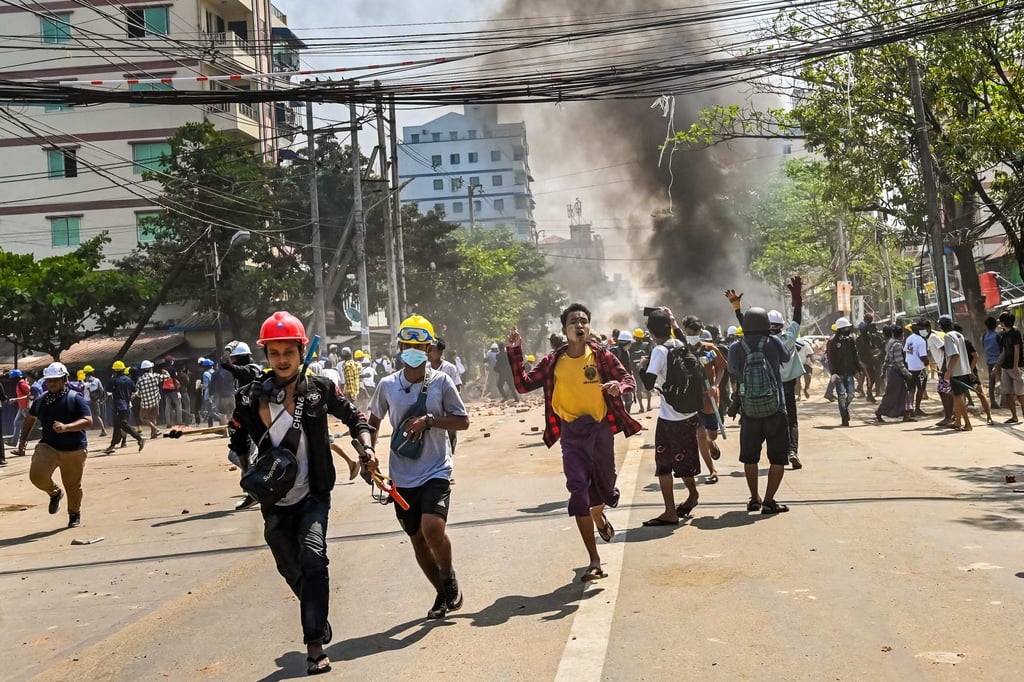‘You don’t dislodge people with guns by shouting at them’: quiet talks offer best hope for end to Myanmar violence, say Asean scholars
- The four scholars were speaking at a webinar organised by the National University of Singapore’s Centre for International Law
- They rejected calls for a UN-led intervention in Myanmar to end the post-coup violence, highlighting diplomacy instead

They also dismissed the possibility that effective recourse could be found through the UN Security Council, saying that route was all but doomed because of superpower rivalry.

Support for outside military intervention under the aegis of the UN’s Responsibility to Protect has rapidly gained traction among Myanmar citizens as the death toll from the military’s crackdown on unarmed protesters continues to increase.
The UN in 2005 recognised that external actors may have a responsibility to protect citizens of a country from gross crimes such as genocide, war crimes and ethnic cleansing – even it meant breaching that nation’s sovereignty. Asean nations by and large do not agree with the principle.
Woon said any such intervention by Asean – called for by Myanmar citizens protesting the coup – was also out of the question as “we do not have the military ability or the economic ability”.